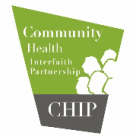Become a community that welcomes those with mental and addictive illness as full members.
1. Commit officially to becoming a compassionate congregation through the governance of your congregation, board, session, vestry, etc.
2. Should you start with a focus group or task force? The first steps, as well as the driving force for creating congregations that welcome those with mental and addictive illnesses, are frequently taken by those with personal experience of the illnesses.
3. What do we do about stigma? Talk about it and encourage your members to point out instances. Awareness and education can accomplish much in this area.
4. Consult with Bridges of Hope from NAMI about stigma and other ways to show hospitality. Read about this program to assist congregations in creating stronger safety nets and welcoming communities of faith for those living with serious mental illnesses. A representative will visit your house of worship and help you. Read about the program here>>
5. Provide training for greeters and ushers to be welcoming of all people.
6. Would a "pew companion" be helpful to anyone in your congregation?
7. Be sure those who have a mental illness are included in prayers just as are those with other health problems. Recognize that families of those with a mental or addictive illness are suffering, too
8. Make prayer quilts, comfort pillows or care baskets to take to those who not come to worship due to their illness to let them know they are not forgotten
9. If you have survivors of suicide in your congregation or community hold or participate in a service on National Survivors of Suicide Day. Read more here>>
10. Have you welcomed those with a mental illness to take part in your altar guild, flower guild, prayer circle, meditation group, Bible study, etc? Include those with a mental illness as ministers and mentors, liturgists, ushers, as they are willing and able.
11. Start a special class for those who are uncomfortable in your usual service. Here are a few ideas and helpful websites:
Children's Mental Health Week is the first week in May.
September is National Recovery Month.
Mental Health Awareness Week is the second week in October.
1. Commit officially to becoming a compassionate congregation through the governance of your congregation, board, session, vestry, etc.
2. Should you start with a focus group or task force? The first steps, as well as the driving force for creating congregations that welcome those with mental and addictive illnesses, are frequently taken by those with personal experience of the illnesses.
3. What do we do about stigma? Talk about it and encourage your members to point out instances. Awareness and education can accomplish much in this area.
4. Consult with Bridges of Hope from NAMI about stigma and other ways to show hospitality. Read about this program to assist congregations in creating stronger safety nets and welcoming communities of faith for those living with serious mental illnesses. A representative will visit your house of worship and help you. Read about the program here>>
5. Provide training for greeters and ushers to be welcoming of all people.
6. Would a "pew companion" be helpful to anyone in your congregation?
7. Be sure those who have a mental illness are included in prayers just as are those with other health problems. Recognize that families of those with a mental or addictive illness are suffering, too
8. Make prayer quilts, comfort pillows or care baskets to take to those who not come to worship due to their illness to let them know they are not forgotten
9. If you have survivors of suicide in your congregation or community hold or participate in a service on National Survivors of Suicide Day. Read more here>>
10. Have you welcomed those with a mental illness to take part in your altar guild, flower guild, prayer circle, meditation group, Bible study, etc? Include those with a mental illness as ministers and mentors, liturgists, ushers, as they are willing and able.
11. Start a special class for those who are uncomfortable in your usual service. Here are a few ideas and helpful websites:
- Rhythms of Grace is a worship model created for children on the autism spectrum but is great for a wide variety of children.
- Developmental Disabilities Ministries will provide a free workshop about starting a ministry to those with disabilities.
- The purpose of Friendship Ministries is to nurture the spiritual growth of people with intellectual disabilities in the context of meaningful relationships.
- Christian Learning Center can help you welcome those with disabilities
Children's Mental Health Week is the first week in May.
September is National Recovery Month.
Mental Health Awareness Week is the second week in October.

